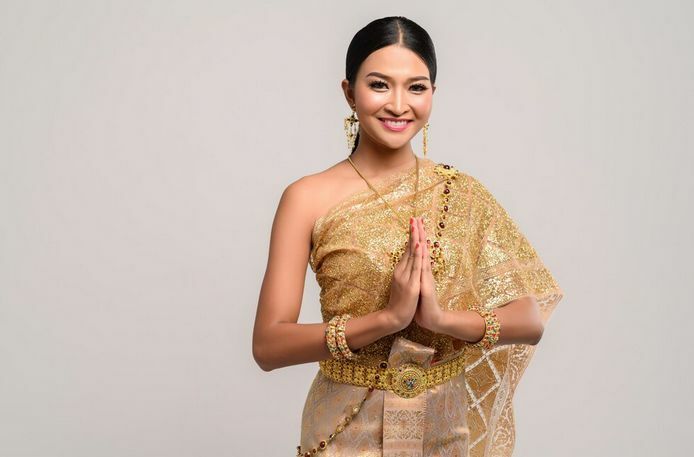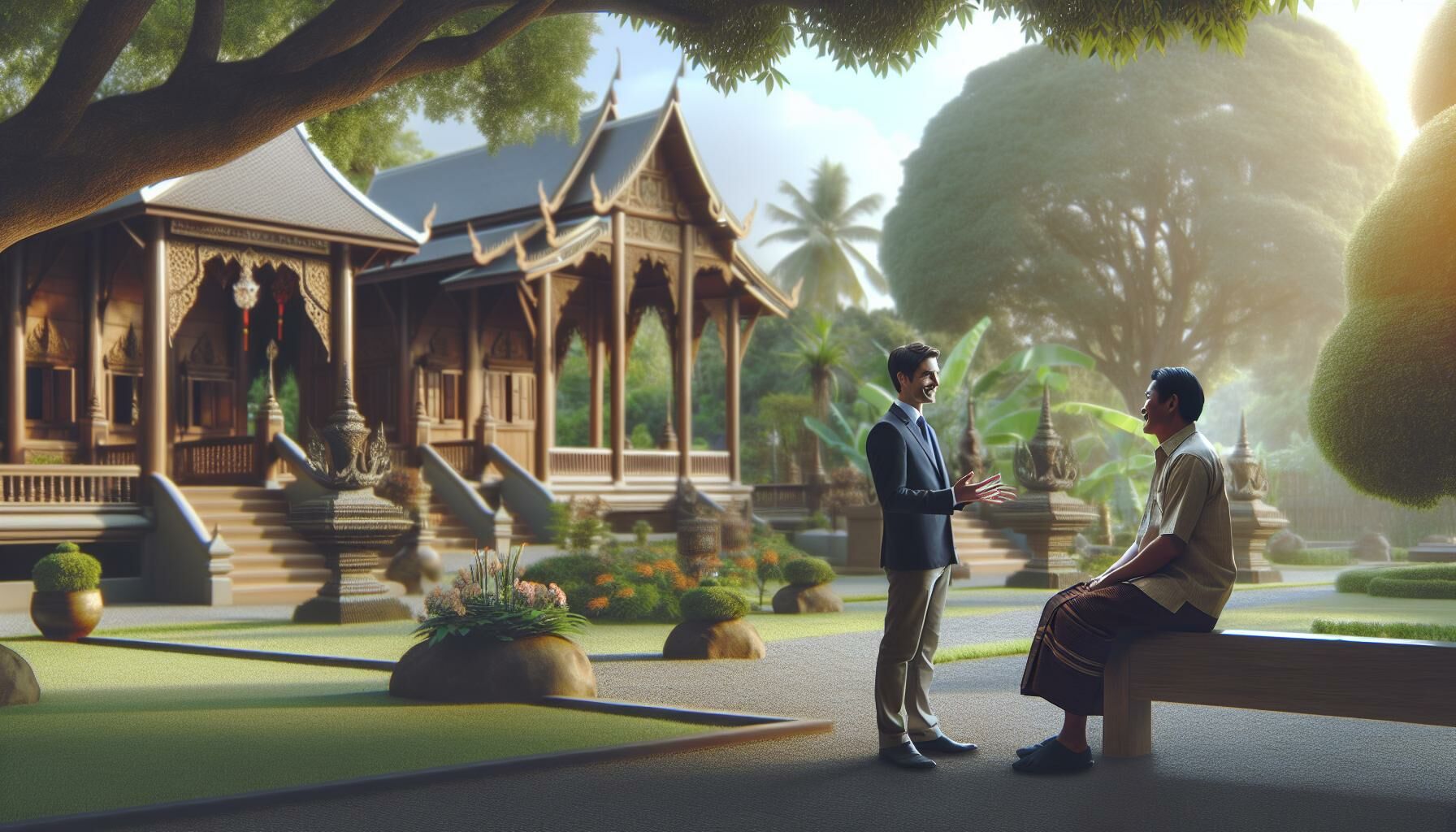Top 7 Things to never say to a Thai person

Navigating cultural nuances can be tricky, especially in a country as rich in tradition and etiquette as Thailand. Whether you’re planning a holiday or a business trip, understanding what not to say can make a world of difference. Thai people value respect and harmony, and certain phrases or behaviours can unintentionally offend.
Things to never say to a Thai person
Comments on the monarchy

Discussing the monarchy with a Thai person is a highly sensitive topic. Thais hold their monarchy in deep respect and reverence. Making negative or casual remarks can be extremely offensive. The lèse-majesté law in Thailand punishes insults to the monarchy with severe penalties. This extends to both foreigners and locals. Any negative comments about the monarchy should be strictly avoided to ensure respectful interactions.
In public or private settings, it’s crucial to steer clear of this topic. Historical and cultural contexts have ingrained deep respect for royal family members. Speaking ill of them can lead to legal and social issues. It’s vital to remember that online comments are also scrutinised. Even statements made on social media can have serious repercussions. Any perceived disrespect toward them can significantly damage relationships.
Any disrespectful comments on Buddhism

 Monks hold a revered position in Thai society. Insulting monks or making inappropriate remarks about them can be deeply offensive. These actions are not just seen as disrespectful but also as a lack of cultural understanding.
Monks hold a revered position in Thai society. Insulting monks or making inappropriate remarks about them can be deeply offensive. These actions are not just seen as disrespectful but also as a lack of cultural understanding.
Remember that temples are sacred places. Negative comments about temple rituals, statues, or architecture can hurt local sentiments. If unsure about something, it’s better to ask respectfully rather than criticise. Appropriate behaviour maintains harmony and shows respect for their spiritual beliefs.
If travelling during Buddhist festivals, avoid making sarcastic remarks about the celebrations. These festivals are significant to the Thai community and involve intricate traditions. Respect these customs to ensure a positive interaction with Thai people.
As with the monarchy, religion is a sensitive subject. Making inappropriate or ignorant comments can lead to social exclusion. Understanding and respecting these cultural nuances is essential for a positive experience in Thailand. Embracing their customs builds stronger connections and shows genuine respect.
Asking about age and career with first time knowing each other

Discussing age and career in Thailand can be sensitive. When first meeting someone, avoid these topics to maintain respect. Age-related questions may make Thai people uncomfortable due to societal hierarchies. This can be perceived as invasive if the relationship is not well-established.
Inquiring about someone’s career can also be problematic. In Thailand, a person’s job might be closely linked to their social status and identity. Asking directly may seem intrusive and could lead to awkwardness. Instead, focus on light, neutral topics to ease into the conversation naturally.
For instance, talking about shared interests or general observations can be a safer approach. If a deeper relationship develops, these topics might become appropriate later. Being mindful of these cultural nuances fosters positive interactions and respects the personal boundaries of Thai individuals.
Comments on skin colour

Making comments on someone’s skin colour can be deeply offensive in Thai culture. Though some may think their remarks are harmless, they can hurt or embarrass the person. Thailand has a complex history with skin colour, where lighter skin is often associated with beauty, status, and privilege.
Many Thais face societal pressure to maintain lighter skin, using whitening products and avoiding sun exposure. Comments implying someone is darker can be perceived as an insult or critique of their social standing. Outside observations about skin colour should be avoided to prevent discomfort or unintended offence.
For instance, comparing someone’s skin tone to a foreigner’s might seem like a compliment, but it can come across as insensitive. This approach respects cultural sensitivities and fosters genuine connections. Directing attention to character, achievements, or shared interests enriches conversations and circumvents potential missteps.
How much do you make?

Asking someone, “How much do you make?” can be perceived as intrusive and rude, especially in Thailand. A Thai person may find discussions about salary uncomfortable. In Thai culture, personal finances are considered private matters.
Financial discussions could make Thais feel self-conscious or judged. It’s a subject typically avoided in casual conversations to maintain harmony and respect. Instead of financial inquiries, focus on more acceptable topics like travel experiences or local cuisine.
Bringing up money can disrupt social harmony, an important value in Thai society. Thais may see this question as questioning someone’s worth or status. It’s best to avoid this topic altogether unless you have established a close relationship with the person.
Respect cultural sensitivities. Focus on building genuine connections without delving into private matters. This approach ensures a respectful and positive interaction with Thais.
Public criticism or negativity about anything personal

Publicly criticising or showing negativity towards personal matters can deeply offend a Thai person. Thais value face-saving and harmony. Remarks about someone’s appearance, weight, or personal habits in a public setting can make them feel humiliated. For instance, using terms like “ช้างน้ำ (chaangnaam)” in public to refer to someone’s weight is a severe insult and can lead to hurt feelings.
Negatively addressing someone’s behaviour or character publicly can also be damaging. Calling someone “ปากหมา (bpaakmaah)” or suggesting they are foulmouthed is considered highly disrespectful. These comments can result in the person losing face, which is a significant social faux pas in Thai culture.
To avoid such situations, focus on positive interactions. If there’s a need for constructive feedback, it’s best to do it privately and gently. This approach helps maintain respect and harmony, crucial values in Thai society. Always remember that preserving a person’s dignity is paramount when engaging with Thais. Showing respect will foster better relationships and avoid unintentionally offending anyone.
Are you ladyboy?

Asking someone if they’re a “ladyboy” is deeply disrespectful to Thai people. The term refers to transgender women or feminine gay men, both of whom deserve respect and dignity. Publicly questioning someone’s gender identity can be offensive and invasive.
Despite Thailand’s reputation for gender diversity, this question can make individuals uncomfortable. It’s crucial to respect personal boundaries and avoid making assumptions based on appearance. Many Thais see such questions as rude and inappropriate, especially from strangers or in casual interactions.
 Navigating cultural nuances in Thailand requires a mindful approach to communication. Showing respect for the monarchy, Buddhism, and societal norms is crucial. Avoiding negative comments and public criticism helps maintain harmony and respect. Refraining from invasive questions and derogatory language ensures interactions are respectful and considerate. By embracing these guidelines, one can foster positive relationships and a deeper understanding of Thai culture.
Navigating cultural nuances in Thailand requires a mindful approach to communication. Showing respect for the monarchy, Buddhism, and societal norms is crucial. Avoiding negative comments and public criticism helps maintain harmony and respect. Refraining from invasive questions and derogatory language ensures interactions are respectful and considerate. By embracing these guidelines, one can foster positive relationships and a deeper understanding of Thai culture.
Latest Thailand News
Follow The Thaiger on Google News:


























